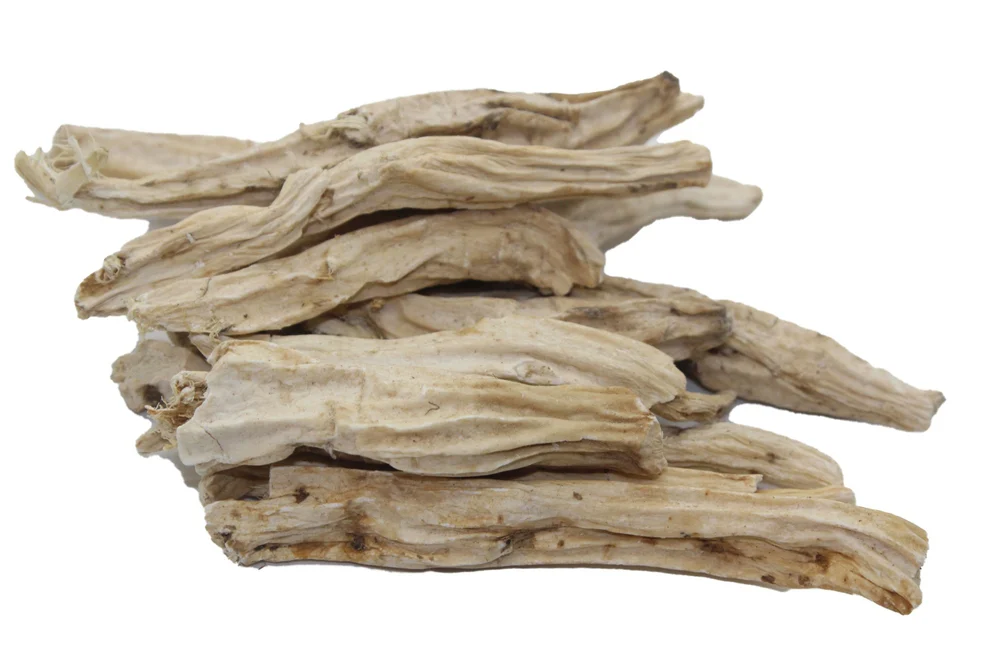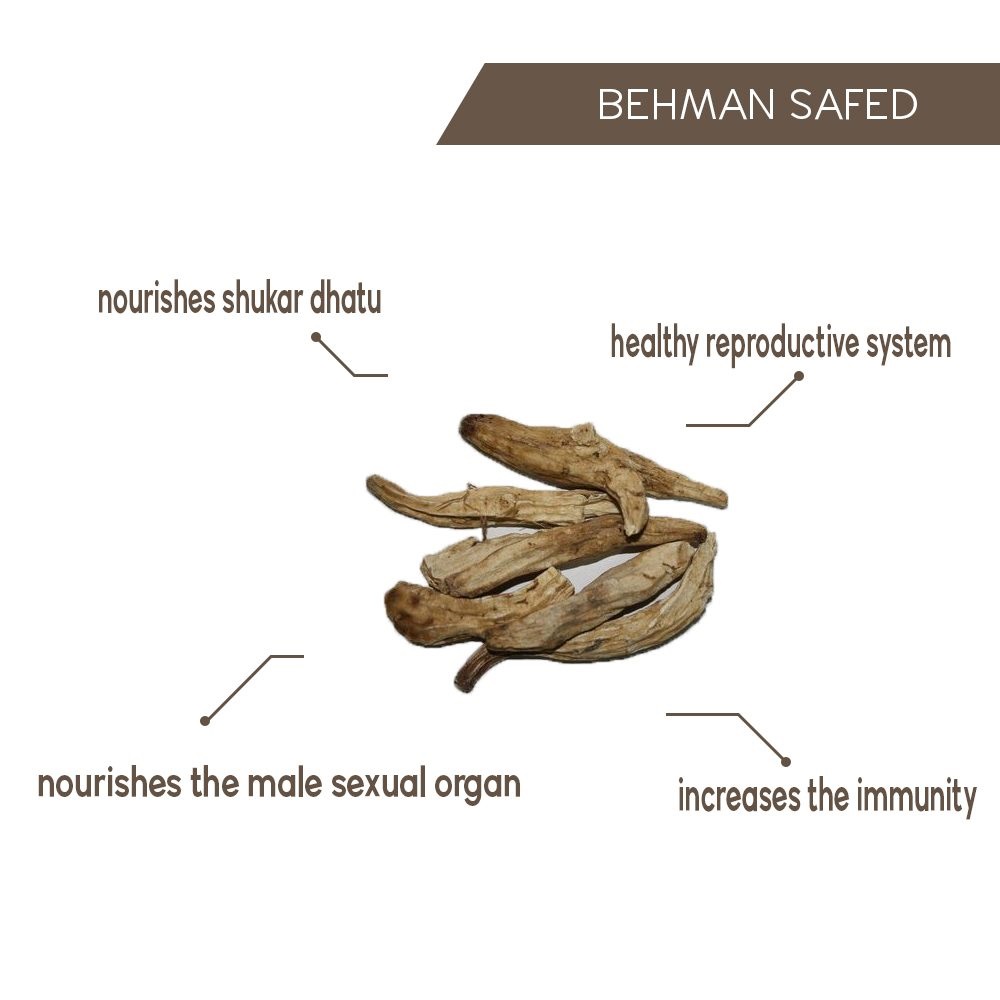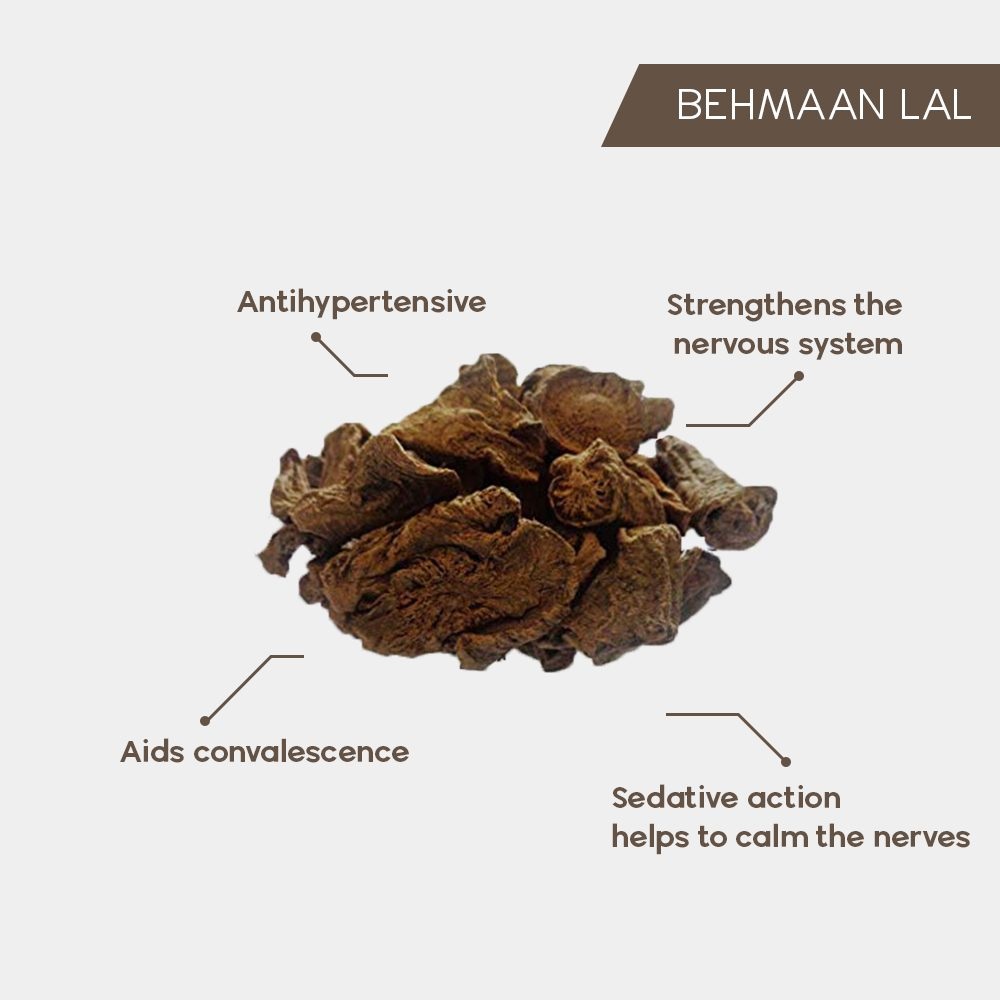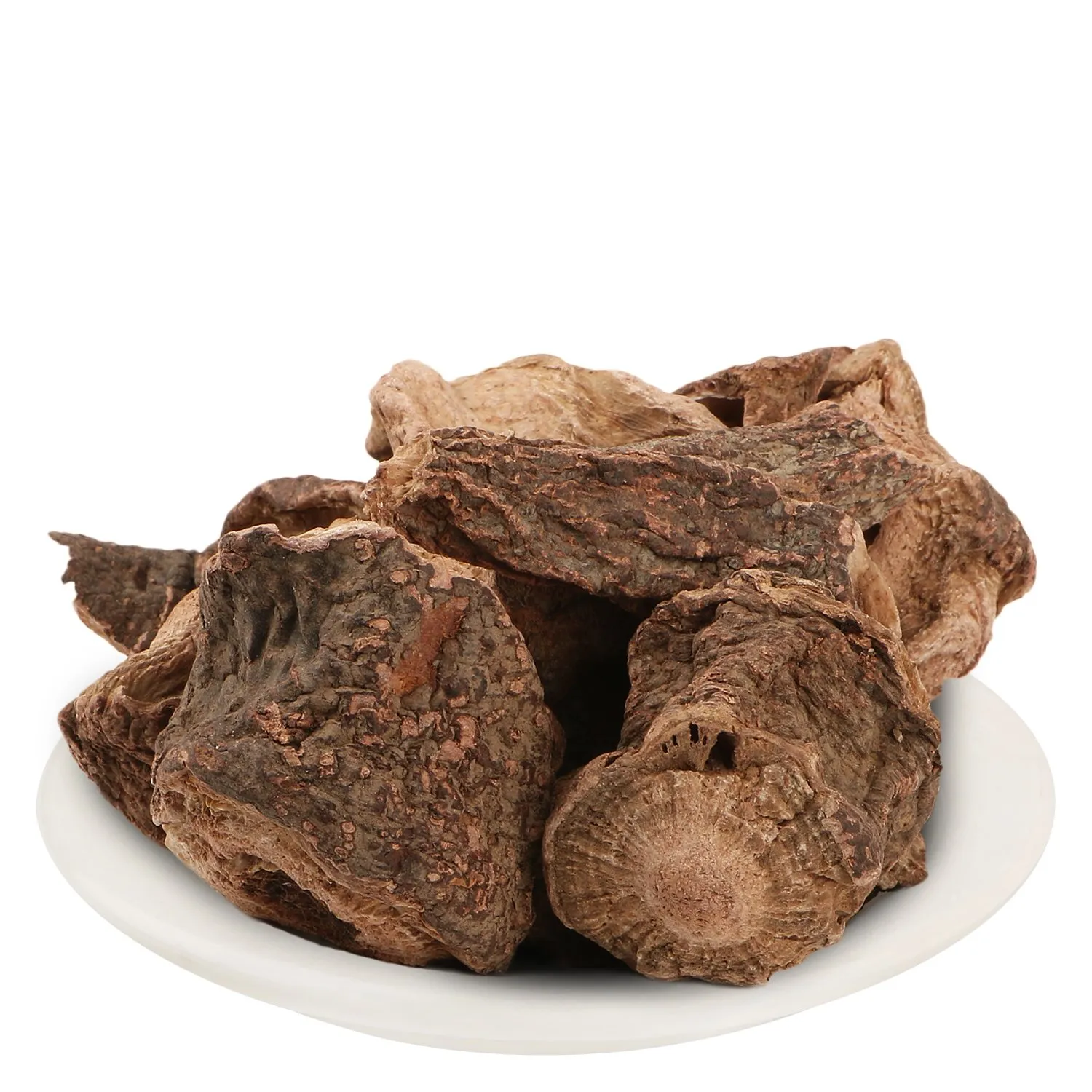INTRODUCTION
Behman (Centaurea Behan), also known as Safed Behman in Ayurvedic medicine, is a herb traditionally used for its medicinal properties. It refers to the dried and powdered roots of the plant, which are valued for their health benefits. Primarily used to treat male fertility issues, it helps increase sperm count and supports sexual health. Additionally, Behman has anti-inflammatory, anti-diabetic, and antibacterial properties. It is also used to improve metabolism, manage stress, and support muscle growth.
Other Names: Bahman Aswad, White Behen, Behen Blanc, flockenblume, Rübendistel, Safed Behman, Centaurea behen, Behman White, Centaurea behen, centaurea behen, Behaman, Vahman, Wahman.
Types
There are two main types of Behman used in traditional medicine:

Safed Behman (White Behman): Derived from Centaurea behen, this type is commonly used in Ayurveda. It is primarily known for improving male fertility, enhancing sexual health, managing stress, and aiding in conditions like diabetes and arthritis. The root of the plant is dried and powdered for medicinal use.
Lal Behman (Red Behman):This is a different variety used in Ayurvedic and Unani medicine. Like Safed Behman, it is also used to support reproductive health but is more often associated with promoting energy and vitality. It is known for enhancing strength and reducing weakness
Forms
Behman, particularly Safed Behman (White Behman), can be found in various forms for different uses in traditional medicine:
- Root form: The raw root is often dried and used in its whole form, particularly for decoctions and medicinal brews.
- Powder form: The dried roots are ground into a fine powder, commonly used in Ayurvedic and Unani treatments. The powder can be mixed with water, milk, or other herbal preparations for oral consumption.
- Capsules or Tablets: Processed forms of Behman are available in capsules or tablet forms, making it easier for regular dosage without the need for preparation.
- Tinctures or Extracts: In some herbal medicine practices, the essence of Behman is extracted and prepared as a tincture, making it more concentrated for therapeutic purposes.
Health Benefits
Behman, especially SafedBehman (White Behman) and Lal Behman (Red Behman), offers several health benefits, particularly in traditional Ayurvedic and Unani medicine:
Male Sexual Health

Behman, particularly Safed Behman (White Behman), is recognized for its numerous benefits related to men’s sexual health. It is traditionally used to enhance fertility by increasing sperm count and motility, thereby improving overall reproductive health. The herb also plays a significant role in boosting libido and addressing issues like erectile dysfunction.
Energy and Vitality
Behman is known for increasing energy and vitality, making it beneficial for those who feel tired or weak. It enhances physical strength and stamina, helping active individuals and those recovering from illness. As an adaptogen, Behman helps the body manage stress and maintain energy levels, leading many users to feel more energetic and resilient in daily life.
Anti-Diabetic
Behman, especially SafedBehman (White Behman), has shown potential anti-diabetic properties in traditional medicine. It is believed to help regulate blood sugar levels and improve insulin sensitivity, making it beneficial for managing diabetes. The herb is thought to work by enhancing glucose metabolism and reducing insulin resistance, which can help stabilize blood sugar levels in individuals with diabetes.
Stress Reduction
Behman, particularly SafedBehman (White Behman), is valued for its ability to reduce stress and promote relaxation. As an adaptogen, it helps the body manage stress by balancing hormones and improving the body’s response to stressful situations. This property makes it beneficial for alleviating anxiety and promoting a sense of well-being.
Antioxidant
Behman, particularly SafedBehman (White Behman), is known for its antioxidant properties, which help protect the body from oxidative stress and damage caused by free radicals. Antioxidants play a crucial role in reducing inflammation and may lower the risk of chronic diseases, such as heart disease and certain cancers.
Respiratory Support

Red Behman, or Behman Surkh, is good for respiratory health. It helps relieve asthma symptoms by relaxing the airways and reducing inflammation. The herb may also fight off infections and help clear mucus from the lungs, making it easier to breathe. Regular use can support overall lung function and improve breathing.
Liver and Kidney Health
Red Behman, or Behman Surkh, supports liver and kidney health by helping the liver detoxify and remove toxins effectively. It may improve kidney function by promoting urination, which helps flush out waste. Additionally, its anti-inflammatory properties can reduce inflammation in these organs, promoting better overall health. This herb is valued in traditional medicine for its beneficial effects on the liver and kidneys.
Nervous System Support
Red Behman, or Behman Surkh, is good for the nervous system. It helps reduce stress and anxiety, promoting relaxation and better mental well-being. The herb may also improve mood, which can help with feelings of depression. Additionally, Red Behman supports cognitive functions like memory and focus, making it beneficial for brain health. Overall, it is valued in traditional medicine for its positive effects on the nervous system.
Side Effects
Red Behman (Salvia haematodes) is generally considered safe, but it may have some side effects. Here are a few potential concerns:
- Pregnancy and Lactation: It is not recommended for pregnant or breastfeeding women due to a lack of sufficient safety data.
- Epilepsy: The herb contains thujone, which may trigger seizures in individuals with epilepsy, so it should be avoided by those affected.
- Allergies: People who are allergic to plants in the mint family (like sage, basil, and thyme) should also avoid this herb to prevent allergic reactions.





